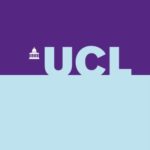 Course Details
Course Details
This international programme is offered by three of Europe’s most prestigious centres of research and teaching in cognitive studies and neuroscience: UCL, Université Pierre et Marie Curie (part of Sorbonne University), and Ecole Normale Supérieure. Students design an individualised programme of study, exploring multidisciplinary perspectives.
Students develop an understanding of the cognitive sciences and neurosciences, and how mechanisms operating at the molecular, cell, network and system level affect normal brain function. They gain a working knowledge of modern methods for scientific and clinical investigation of the human nervous system, along with exposure to leading-edge research.
Students undertake modules to the value of 180 credits in the first year of the programme at UCL and are registered UCL students only for the duration of Year 1.
The programme consists of up to six taught modules (at 15- or 30-credit weighting to a total value of 90 credits) a library project (30 credits) and a research project (60 credits).
Upon successful completion of 180 credits, you will be awarded a MSc in Brain and Mind Sciences.
Please note that the list of modules given here is indicative. This information is published a long time in advance of enrolment and module content and availability is subject to change.
Compulsory modules
Library Project (30 credits)
Research Project (60 credits)
Optional modules
Students choose up to six modules from the following degrees:
Clinical Neuroscience MSc
Neuroscience MSc
Language Sciences (with specialisation in Neuroscience and Communication) MSc
Language Sciences (with specialisation in Linguistics with Neuroscience) MSc
Philosophy MA
Clinical Neuroscience: Neuromuscular Disease MSc
Cognitive and Decision Sciences MSc
Cognitive Neuroscience MSc
Clinical Neuroscience: Stroke Medicine MSc
Advanced Neuroimaging MSc
Dementia: Causes, Treatments and Research (Neuroscience) MSc
Translational Neuroscience MRes
Choosing a module is always dependent on its availability in the current year; other UCL departments may cap module numbers or make them available only to their own students, therefore it is not guaranteed you will be able to take modules outside the IoN. You are invited to make enquiries with the relevant departments before the year begins. Modules at the IoN are not capped and are available to all but you should check for timetable/assessment clashes.
Dissertation/report
All students undertake a library project which is assessed by a 5,000-word essay, and a laboratory research project which culminates in a 10,000-word dissertation and oral examination.
Teaching and learning
The programme is delivered through a combination of lectures, seminars and practical workshops. Lectures are supported by audio-visual aids and supplementary materials, including hand-outs, reading lists and references to original papers and/or reviews. Assessment is through coursework, examination, library project, research dissertation and oral examination.
Additional costs
For more information on additional costs for prospective students please go to our estimated cost of essential expenditure at Accommodation and living costs.
Accessibility
Details of the accessibility of UCL buildings can be obtained from AccessAble accessable.co.uk. Further information can also be obtained from the UCL Student Support & Wellbeing team: ucl.ac.uk/students/fees-and-funding.
What are we looking for?
When we assess your application we would like to learn:
- why you want to study a two-year, two-centre Master’s programme
- what you think the strengths of a “pick and mix” curriculum are
- how you think your previous academic and/or research experience might help you meet the demands of the programme
- what languages you speak, and to what level
- whether or not you want to do a PhD, or other professional scientific or clinical training when you complete the programme
Together with essential academic requirements, the personal statement is your opportunity to illustrate whether your reasons for applying to this programme match what the programme will deliver.
Entry requirements
A minimum of an upper second-class UK Bachelor’s degree in neuroscience or related biological science (e.g. physiology, psychology, biochemistry); or a medical degree from a UK university, or an overseas qualification of an equivalent standard. If you have not studied basic cellular neuroscience in your undergraduate degree, you will be required to do an introductory module during the first year of studies at UCL.
Applicants must be able to follow a postgraduate curriculum in both the French and English languages as the programme involves a year of study in London and a year of study in Paris.
Please note: You must have successfully completed the UCL year (year one) in order to progress to year two in Paris.
Modes and duration
Full time: 2 years – Students must have successfully completed the UCL year (Year 1) in order to progress to Year 2 in Paris. Students will be enrolled as a UCL student for Year 1 only and at Paris – Sorbonne for Year 2.
Course Website
( https://www.ucl.ac.uk/prospective-students/graduate/taught-degrees/brain-and-mind-sciences-msc )
